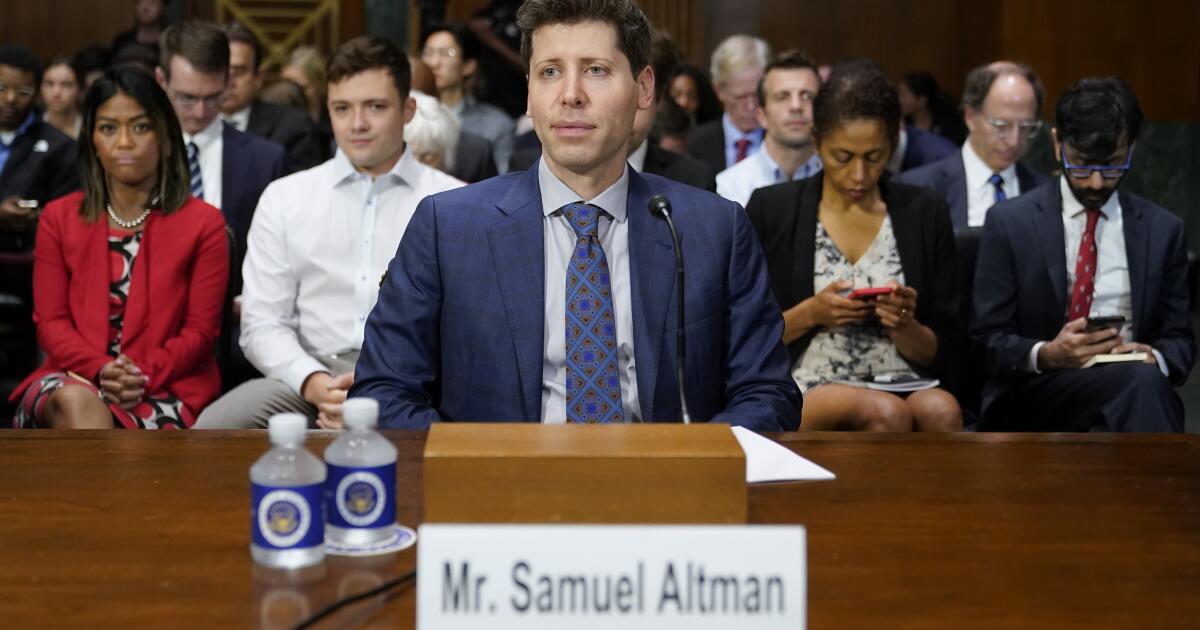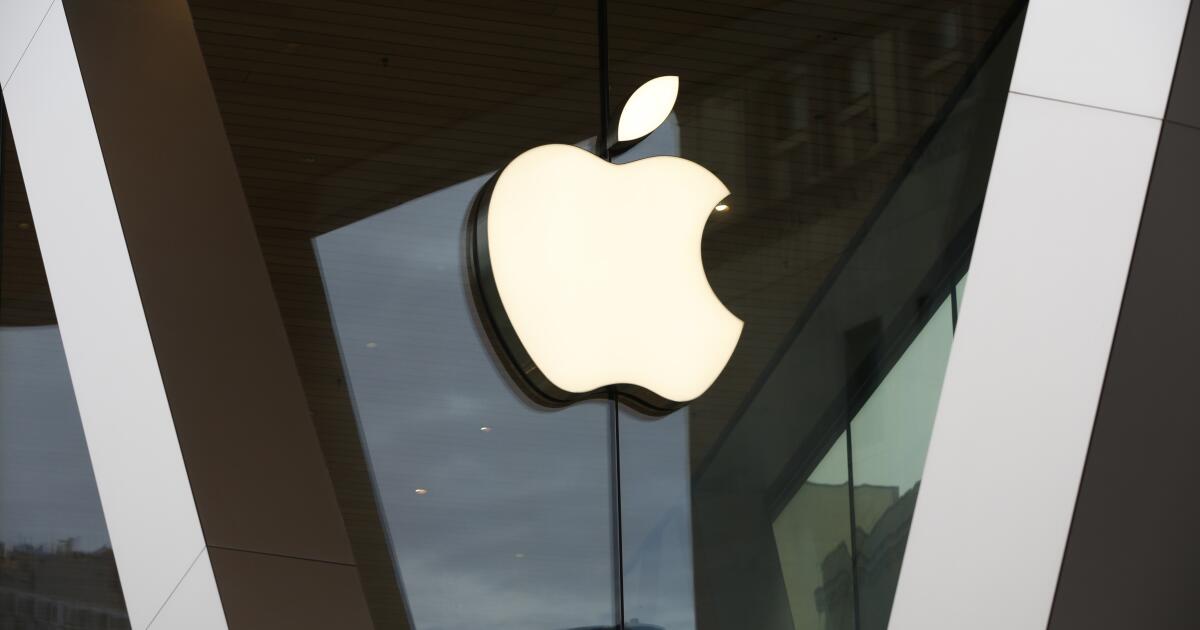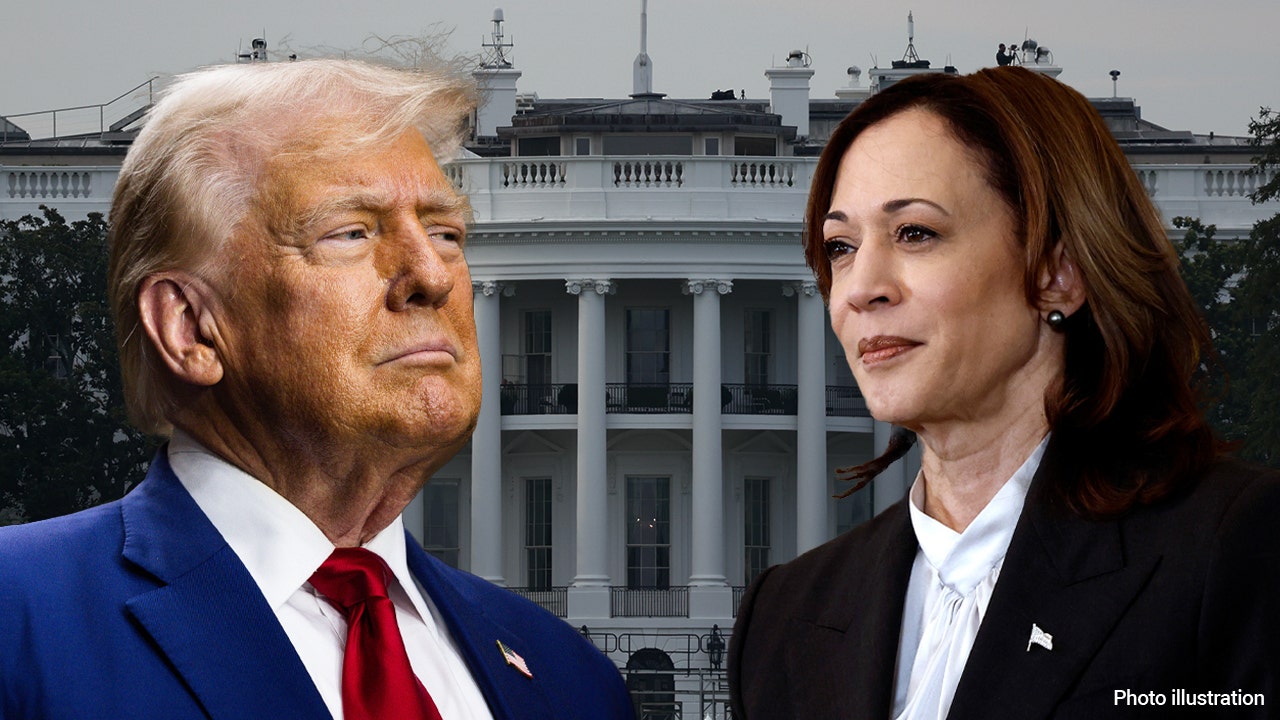Business
Column: OpenAI’s board had safety concerns. Big Tech obliterated them in 48 hours

It’s not every day that the most talked-about company in the world sets itself on fire. Yet that seems to be what happened Friday, when OpenAI’s board announced that it had terminated its chief executive, Sam Altman, because he had not been “consistently candid in his communications with the board.” In corporate-speak, those are fighting words about as barbed as they come: They insinuated that Altman had been lying.
The sacking set in motion a dizzying sequence of events that kept the tech industry glued to its social feeds all weekend: First, it wiped $48 billion off the valuation of Microsoft, OpenAI’s biggest partner. Speculation about malfeasance swirled, but employees, Silicon Valley stalwarts and investors rallied around Altman, and the next day talks were being held to bring him back. Instead of some fiery scandal, reporting indicated that this was at core a dispute over whether Altman was building and selling AI responsibly. By Monday, talks had failed, a majority of OpenAI employees were threatening to resign, and Altman announced he was joining Microsoft.
All the while, something else went up in flames: the fiction that anything other than the profit motive is going to govern how AI gets developed and deployed. Concerns about “AI safety” are going to be steamrolled by the tech giants itching to tap in to a new revenue stream every time.
It’s hard to overstate how wild this whole saga is. In a year when artificial intelligence has towered over the business world, OpenAI, with its ubiquitous ChatGPT and Dall-E products, has been the center of the universe. And Altman was its world-beating spokesman. In fact, he’s been the most prominent spokesperson for AI, period.
For a high-flying company’s own board to dump a CEO of such stature on a random Friday, with no warning or previous sign that anything serious was amiss — Altman had just taken center stage to announce the launch of OpenAI’s app store in a much-watched conference — is almost unheard of. (Many have compared the events to Apple’s famous 1985 canning of Steve Jobs, but even that was after the Lisa and the Macintosh failed to live up to sales expectations, not, like, during the peak success of the Apple II.)
So what on earth is going on?
Well, the first thing that’s important to know is that OpenAI’s board is, by design, differently constituted than that of most corporations — it’s a nonprofit organization structured to safeguard the development of AI as opposed to maximizing profitability. Most boards are tasked with ensuring their CEOs are best serving the financial interests of the company; OpenAI’s board is tasked with ensuring their CEO is not being reckless with the development of artificial intelligence and is acting in the best interests of “humanity.” This nonprofit board controls the for-profit company OpenAI.
Got it?
As Jeremy Khan put it at Fortune, “OpenAI’s structure was designed to enable OpenAI to raise the tens or even hundreds of billions of dollars it would need to succeed in its mission of building artificial general intelligence (AGI) … while at the same time preventing capitalist forces, and in particular a single tech giant, from controlling AGI.” And yet, Khan notes, as soon as Altman inked a $1-billion deal with Microsoft in 2019, “the structure was basically a time bomb.” The ticking got louder when Microsoft sunk $10 billion more into OpenAI in January of this year.
We still don’t know what exactly the board meant by saying Altman wasn’t “consistently candid in his communications.” But the reporting has focused on the growing schism between the science arm of the company, led by co-founder, chief scientist and board member Ilya Sutskever, and the commercial arm, led by Altman.
We do know that Altman has been in expansion mode lately, seeking billions in new investment from Middle Eastern sovereign wealth funds to start a chip company to rival AI chipmaker Nvidia, and a billion more from Softbank for a venture with former Apple design chief Jony Ive to develop AI-focused hardware. And that’s on top of launching the aforementioned OpenAI app store to third party developers, which would allow anyone to build custom AIs and sell them on the company’s marketplace.
The working narrative now seems to be that Altman’s expansionist mind-set and his drive to commercialize AI — and perhaps there’s more we don’t know yet on this score — clashed with the Sutskever faction, who had become concerned that the company they co-founded was moving too fast. At least two of the board’s members are aligned with the so-called effective altruism movement, which sees AI as a potentially catastrophic force that could destroy humanity.
The board decided that Altman’s behavior violated the board’s mandate. But they also (somehow, wildly) seem to have failed to anticipate how much blowback they would get for firing Altman. And that blowback has come at gale-force strength; OpenAI employees and Silicon Valley power players such as Airbnb’s Brian Chesky and Eric Schmidt spent the weekend “I am Spartacus”-ing Altman.
It’s not hard to see why. OpenAI had been in talks to sell shares to investors at an $86-billion valuation. Microsoft, which has invested over $11 billion in OpenAI and now uses OpenAI’s tech on its platforms, was apparently informed of the board’s decision to fire Altman five minutes before the wider world. Its leadership was furious and seemingly led the effort to have Altman reinstated.
But beyond all that lurked the question of whether there should really be any safeguards to the AI development model favored by Silicon Valley’s prime movers; whether a board should be able to remove a founder they believe is not acting in the interest of humanity — which, again, is their stated mission — or whether it should seek relentless expansion and scale.
See, even though the OpenAI board has quickly become the de facto villain in this story, as the venture capital analyst Eric Newcomer pointed out, we should maybe take its decision seriously. Firing Altman was not likely a call they made lightly, and just because they’re scrambling now because it turns out that call was an existential financial threat to the company does not mean their concerns were baseless. Far from it.
In fact, however this plays out, it has already succeeded in underlining how aggressively Altman has been pursuing business interests. For most tech titans, this would be a “well, duh” situation, but Altman has fastidiously cultivated an aura of a burdened guru warning the world of great disruptive changes. Recall those sheepdog eyes in the congressional hearings a few months back where he begged for the industry to be regulated, lest it become too powerful? Altman’s whole shtick is that he’s a weary messenger seeking to prepare the ground for responsible uses of AI that benefit humanity — yet he’s circling the globe lining up investors wherever he can, doing all he seemingly can to capitalize on this moment of intense AI interest.
To those who’ve been watching closely, this has always been something of an act — weeks after those hearings, after all, Altman fought real-world regulations that the European Union was seeking to impose on AI deployment. And we forget that OpenAI was originally founded as a nonprofit that claimed to be bent on operating with the utmost transparency — before Altman steered it into a for-profit company that keeps its models secret.
Now, I don’t believe for a second that AI is on the cusp of becoming powerful enough to destroy mankind — I think that’s some in Silicon Valley (including OpenAI’s new interim CEO, Emmett Shear) getting carried away with a science fictional sense of self-importance, and a uniquely canny marketing tactic — but I do think there is a litany of harms and dangers that can be caused by AI in the shorter term. And AI safety concerns getting so thoroughly rolled at the snap of the Valley’s fingers is not something to cheer.
You’d like to believe that executives at AI-building companies who think there’s significant risk of global catastrophe here couldn’t be sidelined simply because Microsoft lost some stock value. But that’s where we are.
Sam Altman is first and foremost a pitchman for the year’s biggest tech products. No one’s quite sure how useful or interesting most of those products will be in the long run, and they’re not making a lot of money at the moment — so most of the value is bound up in the pitchman himself. Investors, OpenAI employees and partners such as Microsoft need Altman traveling the world telling everyone how AI is going to eclipse human intelligence any day now much more than it needs, say, a high-functioning chatbot.
Which is why, more than anything, this winds up being a coup for Microsoft. Now they’ve got Altman in-house, where he can cheerlead for AI and make deals to his heart’s content. They still have OpenAI’s tech licensed, and OpenAI will need Microsoft more than ever.
Now, it may yet turn out to be that this was nothing but a power struggle among board members, and it was a coup that went wrong. But if it turns out that the board had real worries and articulated them to Altman to no avail, no matter how you feel about the AI safety issue we should be concerned about this outcome: a further consolidation of power of one of the biggest tech companies and less accountability for the product than ever.
If anyone still believes a company can steward the development of a product like AI without taking marching orders from Big Tech, I hope they’re disabused of this fiction by the Altman debacle. The reality is, no matter whatever other input may be offered to the company behind ChatGPT, the output will be the same: Money talks.

Business
How Trump's second presidency could bring more drama to Hollywood

Already facing retrenchment and existential concerns about its business model, Hollywood is bracing for more potential volatility from the incoming Trump administration.
While President-elect Donald Trump has not laid out specific plans for the entertainment industry, analysts said his proposed broader policies on global tariffs, as well as the threat of retaliation against companies, could put a chill on Los Angeles’ signature business.
“If I were wealthy today, I would not be buying stock in the entertainment world,” said Stephen Galloway, dean of Chapman University’s Dodge College of Film and Media Arts. “There’s going to be a lot of turbulence.”
California Gov. Gavin Newsom recently proposed upping the annual cap on state film and TV tax credits to $750 million, from its current total of $330 million. He and others have called for the federal government to step in and keep the U.S. competitive in global production.
But it’s unlikely that Trump would throw the film and TV business a lifeline, especially in any way that could help Newsom and deep-blue California.
“Let’s face it, liberal Hollywood is the enemy,” Galloway said. “Even though this is a guy who made his name in entertainment, he’s not going to be a pro-entertainment-industry politician.”
Many Hollywood stars and executives were vocal backers of the Democratic nominee, Vice President Kamala Harris, lending her their endorsements and their pocketbooks after pushing for President Biden to withdraw from the race.
Some executives hedged their bets, though. Warner Bros. Discovery Chief Executive David Zaslav demurred when asked this summer whom he supported for president, saying he preferred someone who would pave the way for more consolidation.
On Thursday, the Motion Picture Assn. trade group, which lobbies on behalf of the studios, congratulated Trump and the incoming Congress on their victories.
“We look forward to working with them on a wide range of important issues for the film, TV, and streaming industry, which supports more than 2.7 million American jobs, boosts more than 240,000 businesses in cities and small towns across the country, and delivers over $242 billion in wages to our workforce each year,” the group said in a statement.
Analysts were also concerned about the effect a potential tariff war could have on the entertainment industry.
If Trump follows through with his threats of global tariffs, nations like China could ban U.S. imports, including film and TV shows, which would dent the already-reeling distribution market, Galloway said. During Trump’s first term, the president’s trade war with China was partly blamed for derailing Hollywood’s relationship with the country.
The potential for retaliation could also be a problem, said Kevin Klowden, executive director of the Milken finance institute.
As a candidate, Trump railed against CBS and said he wanted the network’s broadcast license pulled for editing one of Harris’ answers during her interview on “60 Minutes.” The news program has flatly denied allegations of deceptive editing to help Harris.
That type of directive would likely get tied up in the courts, but “it’s the threat that becomes the issue,” Klowden said.
Films and TV shows that paint Trump in a negative light run the risk of drawing his ire, which could then affect their parent companies, Galloway said. Media and entertainment giants might be wary of the situation Walt Disney Co. found itself in after it battled Florida Gov. Ron DeSantis over the state’s so-called Don’t Say Gay anti-LGBTQ legislation.
Recently, the Trump biopic “The Apprentice” struggled to find a distributor after the former president’s team threatened legal action. The film fared poorly at the U.S. box office.
More conservative media, on the other hand, could see a boost in their stock, including the Murdoch family-owned News Corp., which publishes the New York Post, Wall Street Journal and Investor’s Business Daily, and Fox Corp., parent company of Trump’s favored Fox News.
“Back in the day, studios were little companies making movies,” Galloway said. “Now they’re cogs in enormous, multinational operations where one domino suddenly sends 50 others falling.”
Business
AI startup funding hit a record in L.A. area last quarter. Here's who got the most money

The Bay Area has long held the title for attracting the most venture capital funding in the nation, and that naturally includes the hot market for artificial intelligence startups. After all, San Francisco is home to some of the most prominent AI players, including ChatGPT maker OpenAI.
But the Greater L.A. area is growing its presence in this space. The region broke a record in the third quarter, capturing $1.8 billion in VC investment for AI startups with a total of 31 deals, according to a new report by research firm CB Insights. L.A. ranked as the second-biggest market for AI investments, up from the second quarter, in which it ranked behind Silicon Valley, New York and Boston.
The big bump came mostly from a single deal: a $1.5-billion funding round for Costa Mesa-based defense technology firm Anduril Industries, the report said. The deal, which was announced in August, was led by Founders Fund and Sands Capital. The round valued the seven-year-old business at $14 billion.
Anduril, which manufactures autonomous weapons systems, including submarine drones, has said it would use the additional investment “to increase hiring, enhance processes, upgrade tooling, increase resiliency in its supply chain and expand infrastructure.” The company, co-founded by entrepreneur Palmer Luckey, has signed more than $1 billion in public contracts with the U.S. and allied governments. His company and other tech businesses that serve the defense industry are expected to get a boost from the incoming Trump administration.
For years, L.A. has been working to build itself as a major home for innovative technology, even at one point marketing the region as “Silicon Beach.” Some hope that AI can help boost Southern California as a tech destination, especially with applications in areas such as manufacturing, entertainment and healthcare.
“L.A. is definitely becoming a serious tech hub,” said Ivan Nikkhoo, a managing partner with Navigate Ventures, adding that the area has plenty of schools providing engineering talent and a lot of networking events. “All the elements are there.”
While Los Angeles is the epicenter of entertainment, where AI is expected to have serious ramifications, much of the recent tech investment was focused on other industries, including healthcare.
Startups in the L.A. region that raised significant capital in the quarter included Regard, a business that is offering an AI-powered clinical insights platform for doctors. The firm raised $61 million. Another healthcare-based company, Pearl, which creates artificial intelligence tools to help read dental patient X-rays, raised $58 million — which the company says is the biggest investment ever in dental AI.
Pictor Labs, a West Los Angeles-based startup spun off from the UCLA engineering school, raised $30 million in the third quarter, bringing its total venture capital investment so far to about $49 million. Pictor Labs uses AI to quickly analyze tissue samples digitally. The startup says it could save pathology labs significant time and resources, as well as reduce labs’ footprint in toxic reagents.
“It shows the strong interest and support of our investors for AI-driven solutions, particularly in the healthcare sector,” said Pictor Labs Chief Executive Yair Rivenson. The funding will help grow the company’s 24-member staff and accelerate its product development, Rivenson said.
AI startups globally saw the number of deals increase to 1,245 in the third quarter, up 24% from the previous quarter, indicating investor interest remains strong in the category, according to CB Insights. Overall venture deals declined 10% compared with the previous quarter, the research firm said. In the L.A. area, venture capital investments bucked national trends, rising 38% compared with the second quarter.
The U.S. market captured 68% of the global venture capital funding in AI companies, with Silicon Valley taking up roughly half of that amount.
Hollywood studios are in discussion with companies such as OpenAI to potentially license video footage to train AI models. And last month, L.A. residents got a sneak peek at what that could look like at a generative AI film competition in Culver City.
The so-called Culver Cup competition, which was hosted by Amazon’s AWS Startups and L.A.-based tech firm FBRC.ai, showcased eight films that were created with AI tools. The winning film was a narrative that explored how food helped an elderly woman with dementia remember her life with her late husband. Judges noted that the top films honed in on truly human stories.
AI is particularly controversial in Hollywood, where entertainment industry unions have fought hard for protections against digital automation that could kill jobs.
“People are really fearful about what they don’t know,” said Todd Terrazas, co-founder of FBRC.ai. “Having these types of showcases help show people what is possible today with these tools.”
Terrazas said he has noticed more investments in the area’s AI startups during the last two years. L.A. has an edge over other cities’ AI communities in entertainment, media, aerospace, manufacturing and gaming, he said.
“I think it’s really us leaning into our strengths with the industries that are prominent here in Los Angeles and doubling down on building these new startups,” he said.
There will also be an AI International Film Festival, screening around 20 short films, held at the Los Feliz Theatre next month.
Business
Fed cuts interest rates again, but Trump's victory makes future path much murkier

The Federal Reserve cut interest rates for a second straight time Thursday in an effort to keep the economy sailing along by easing the high borrowing costs it engineered to fight inflation. But going forward the Fed’s rate path looks very uncertain as policymakers must contend with a big new unknown: the policies and politics of a second Trump presidential term.
Thursday’s quarter-percentage-point reduction in the Fed’s benchmark rate was expected. It comes on the heels of a half-point cut in September, when the central bank pivoted to loosen monetary policy after having held its key rate at a two-decade high of 5.33% for months to throttle back inflation.
“The economy is strong overall,” said Jerome H. Powell, the Fed’s chair, at a news conference after a two-day meeting. “The labor market has cooled from its formerly overheated state and remains solid. Inflation has eased substantially.”
Although inflation remains a bit higher than the Fed’s 2% target, prices have come down sharply from their highs in 2022. Fed officials had previously signaled Thursday’s rate cut and another one in December, followed by several more next year.
The Fed eventually wants to get to a point where interest rates are neither stimulating nor restricting the economy, as they are now. That’s seen as happening with a rate of about 3%.
“We’re trying to steer between the risk of moving too quickly and perhaps undermining our progress on inflation or moving too slowly and allowing the labor market to weaken too much,” Powell said. “We’re trying to be on a middle path where we can maintain the strength in the labor market while also enabling further progress on inflation.”
But with Trump’s victory, the Fed’s balancing act may get a lot harder.
Economists see risks on two fronts: If Trump follows through on his campaign promises to lower taxes, levy across-the-board tariffs on foreign goods and undertake mass deportations, thereby shrinking the labor supply, he could spur economic growth but also reignite inflation in the process, forcing the Fed to pull back on its rate-cutting plans.
The prospect of stronger growth, especially for corporations, was largely behind the huge rally on Wall Street after Trump’s sweeping win. The Dow, which surged more than 1,500 points Wednesday, or up 3.6%, closed unchanged. The broader Standard & Poor’s 500 index extended its gains, rising 0.74%; and the Nasdaq climbed 1.5%.
But even as the Fed has lowered rates, mortgage rates have edged a bit higher recently, along with long-term bond yields, reflecting what some see as expectations for higher inflation and interest rates down the road. If that trend continues, it could further complicate Fed decisions, especially because housing costs seem to be a top concern for people.
“The rise in long-term rates and mortgages is kind of offsetting some of the oomph of the Fed’s rate cuts,” said Ryan Sweet, chief U.S. economist at Oxford Economics.
“We’re watching that,” Powell said when asked about higher long-term bond yields, which move in tandem with mortgage rates. But, he added, “it’s too early to say where they settle. If they’re persistent and they’re material, we’ll certainly take them into account.”
The second risk is the politics of a reelected president who has often challenged the traditional independence of the central bank and the mainstream economics of Powell.
In Trump’s first term, he at times publicly hectored Powell and his advisors pushed him to resign, though it was Trump who appointed him. The Fed and financial markets consider the central bank’s independence sacrosanct for sound economic policymaking.
Without commenting on Trump, Rodney Ramcharan, a former Fed economist who is now professor of finance and business economics at USC’s Marshall School of Business, said that “a feature of authoritarian governments is an erosion of norms and institutions.” And he noted that political pressure could be applied in public or privately.
“He likes low interest rates,” Christopher Rupkey, chief economist at Fwdbonds, an economic and market research firm in New York, said of Trump. “There could be more jawboning to get rates lower and to get stronger growth.”
And if he doesn’t get what he wants, Rupkey said, Trump could replace Powell when his term expires in May 2026. “One of the wild card factors is, he gets someone in there that would be amenable to pushing rates even lower.”
Powell has long insisted that the Fed makes its decision without consideration of politics. Asked on Thursday whether he would resign if president-elect Trump asked him to, Powell replied, “No.”
For now, analysts expect the Fed to stay on its rate-cutting course, shaving another quarter of a percentage point from its main interest rate at its December meeting.
But since Trump’s sweeping victory, odds have increased that Fed officials will pause next month or early next year as they wait to see what a second Trump administration might mean for fiscal policies and the economy.
Powell said that the Fed’s decisions will continue to be data driven and that it’s too early to say how the economy might evolve.
“In the near term, the election will have no effects on our policy decisions,” he said. “Here, we don’t know what the timing and substance of any policy changes will be. We therefore don’t know what the effects on the economy will be, specifically whether and to what extent those policies would matter in the achievement for our goal variables, maximum employment and price stability.
“We don’t guess, we don’t speculate and we don’t assume,” he said.
-
Business1 week ago
Carol Lombardini, studio negotiator during Hollywood strikes, to step down
-

 Health1 week ago
Health1 week agoJust Walking Can Help You Lose Weight: Try These Simple Fat-Burning Tips!
-
Business7 days ago
Hall of Fame won't get Freddie Freeman's grand slam ball, but Dodgers donate World Series memorabilia
-

 Culture6 days ago
Culture6 days agoYankees’ Gerrit Cole opts out of contract, per source: How New York could prevent him from testing free agency
-

 Culture4 days ago
Culture4 days agoTry This Quiz on Books That Were Made Into Great Space Movies
-

 Business1 week ago
Business1 week agoApple is trying to sell loyal iPhone users on AI tools. Here's what Apple Intelligence can do
-
/cdn.vox-cdn.com/uploads/chorus_asset/file/25299201/STK453_PRIVACY_B_CVirginia.jpg)
/cdn.vox-cdn.com/uploads/chorus_asset/file/25299201/STK453_PRIVACY_B_CVirginia.jpg) Technology7 days ago
Technology7 days agoAn Okta login bug bypassed checking passwords on some long usernames
-

 Politics1 week ago
Politics1 week agoTrump pledges 'America's new golden age' as he rallies in PA's post-industrial third-largest city
















